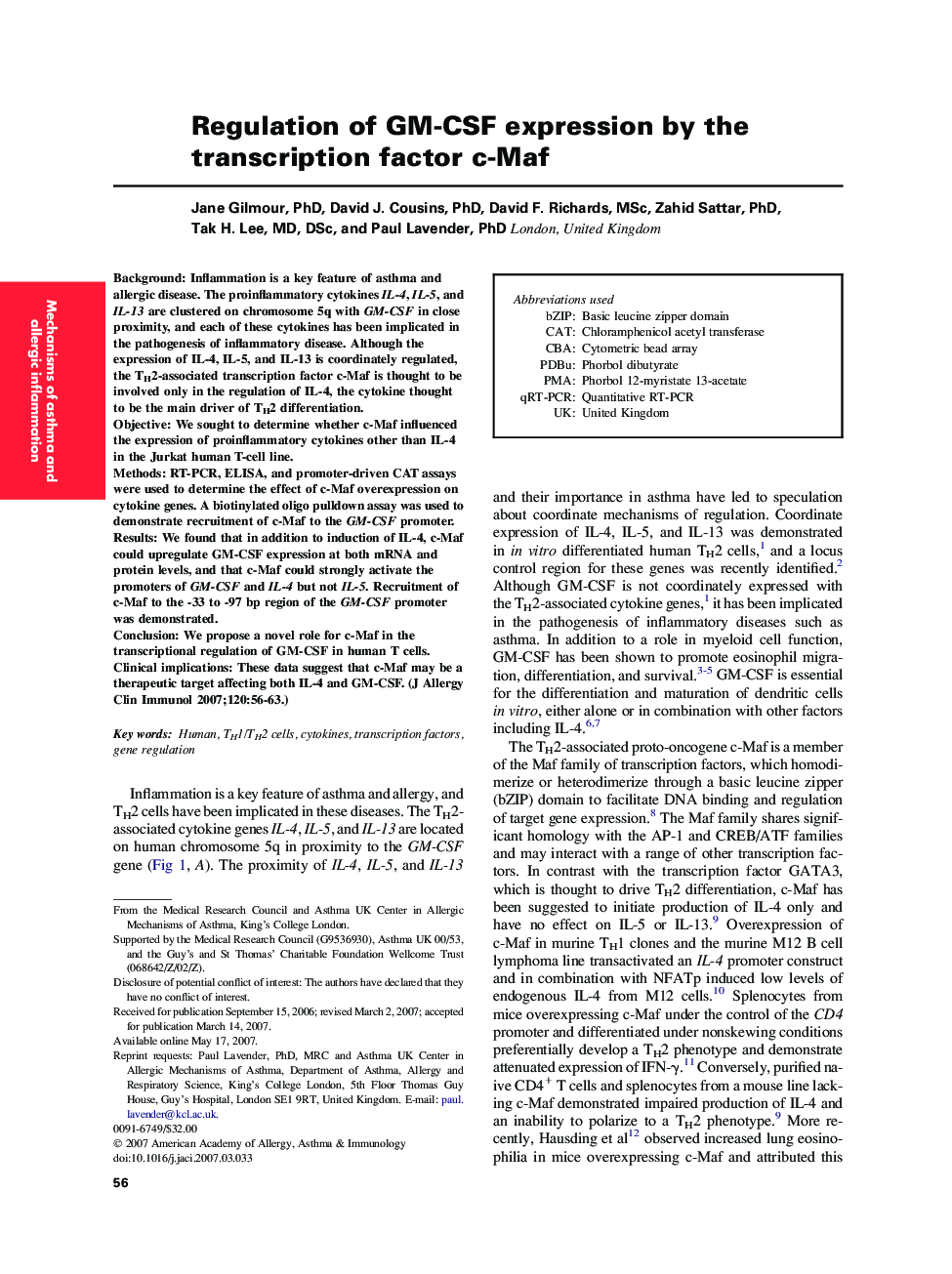| Article ID | Journal | Published Year | Pages | File Type |
|---|---|---|---|---|
| 3201585 | Journal of Allergy and Clinical Immunology | 2007 | 8 Pages |
BackgroundInflammation is a key feature of asthma and allergic disease. The proinflammatory cytokines IL-4, IL-5, and IL-13 are clustered on chromosome 5q with GM-CSF in close proximity, and each of these cytokines has been implicated in the pathogenesis of inflammatory disease. Although the expression of IL-4, IL-5, and IL-13 is coordinately regulated, the TH2-associated transcription factor c-Maf is thought to be involved only in the regulation of IL-4, the cytokine thought to be the main driver of TH2 differentiation.ObjectiveWe sought to determine whether c-Maf influenced the expression of proinflammatory cytokines other than IL-4 in the Jurkat human T-cell line.MethodsRT-PCR, ELISA, and promoter-driven CAT assays were used to determine the effect of c-Maf overexpression on cytokine genes. A biotinylated oligo pulldown assay was used to demonstrate recruitment of c-Maf to the GM-CSF promoter.ResultsWe found that in addition to induction of IL-4, c-Maf could upregulate GM-CSF expression at both mRNA and protein levels, and that c-Maf could strongly activate the promoters of GM-CSF and IL-4 but not IL-5. Recruitment of c-Maf to the -33 to -97 bp region of the GM-CSF promoter was demonstrated.ConclusionWe propose a novel role for c-Maf in the transcriptional regulation of GM-CSF in human T cells.Clinical implicationsThese data suggest that c-Maf may be a therapeutic target affecting both IL-4 and GM-CSF.
